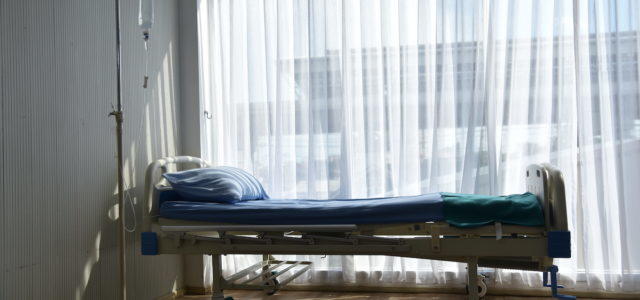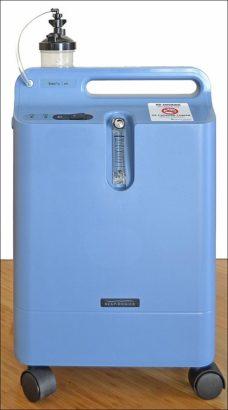
Caption
Public Health reported 155 COVID-19 deaths Thursday, among the highest numbers of virus fatalities recorded in a single day in the state.
Credit: Georgia Health News

Public Health reported 155 COVID-19 deaths Thursday, among the highest numbers of virus fatalities recorded in a single day in the state.
Since it hit the United States a year and a half ago, the COVID-19 pandemic has led to several significant shortages in the care of patients, from personal protective equipment to hospital personnel.
Hospital officials say a new shortage has emerged in Georgia: oxygen concentrators, which are devices that give a patient extra oxygen.
The Georgia Hospital Association said Thursday that some of the state’s large hospitals with heavy COVID-19 loads are having trouble obtaining the machines for patients ready to be discharged.
That can worsen a patient backlog at hospitals. Instead of going home, the patients who won’t have off-site access to oxygen machines “have to be kept in the hospital,” said Anna Adams, a GHA executive. And while they stay hospitalized, these patients will be tying up resources that could be used for more acutely ill people, she added.

Oxygen concentrators are devices that give a patient extra oxygen when they are released from the hospital.
The state reported Thursday that 98% of the ICU beds in Georgia are filled.
Public Health also reported 155 COVID-19 deaths Thursday, among the highest numbers of virus fatalities recorded in a single day in the state. Georgia has the 10th-highest rate of new COVID infections over the seven days, but its daily virus death rate is fourth-highest, according to New York Times data.
With beds filled and staffs stretched, hospital systems are cutting back on elective surgeries to concentrate on the COVID load. Grady Health System in Atlanta canceled all outpatient surgeries and procedures to deal with the continuing surge. Atlanta-based Piedmont Healthcare said it’s pausing elective surgeries at some locations.
One of every three patients now in Georgia hospitals has COVID-19.
Staffing shortages, meanwhile, have helped make this COVID surge the worst of the four so far, hospital officials say. The Georgia Nurses Association calls the current nursing shortage the worst in the state’s history.
“We’re overwhelmed,” said Jimmy Lewis, CEO of HomeTown Health, an association of rural hospitals in the state.
Hospitals have many licensed beds that can’t be used because of staffing shortages, he added.
This surge also has brought a record rise in COVID infections and hospitalizations among children.
Children’s Healthcare of Atlanta reported Thursday that it has 37 patients hospitalized in its system for acute or active COVID, and an additional 20 who are continuing to receive care for COVID-related conditions.
“What we are seeing indicates that obesity in unvaccinated children ages 12 and older and a history of asthma in all ages are factors that put a child at the highest risk of being hospitalized with COVID,” said Jennifer Burkhardt, a Children’s Healthcare spokeswoman. “It is important to note that these groups of most vulnerable kids could be protected by increasing vaccinations among children 12 and over and adults eligible for the vaccine.”
Children’s is also seeing higher volumes in emergency departments and urgent care centers due to a variety of respiratory viruses, including RSV.
Separately, the Georgia Department of Public Health said the mu variant of COVID-19 has entered the state. There had been fewer than 50 cases of this variant reported here as of Wednesday.
The mu variant is a strain of the coronavirus first identified in Colombia in January. Since then, it has caused isolated outbreaks elsewhere in South America, as well as in Europe and the United States.
But mu accounts for few cases of COVID currently, with delta being the predominant driver of infections.
This story comes to GPB through a reporting partnership with Georgia Health News.